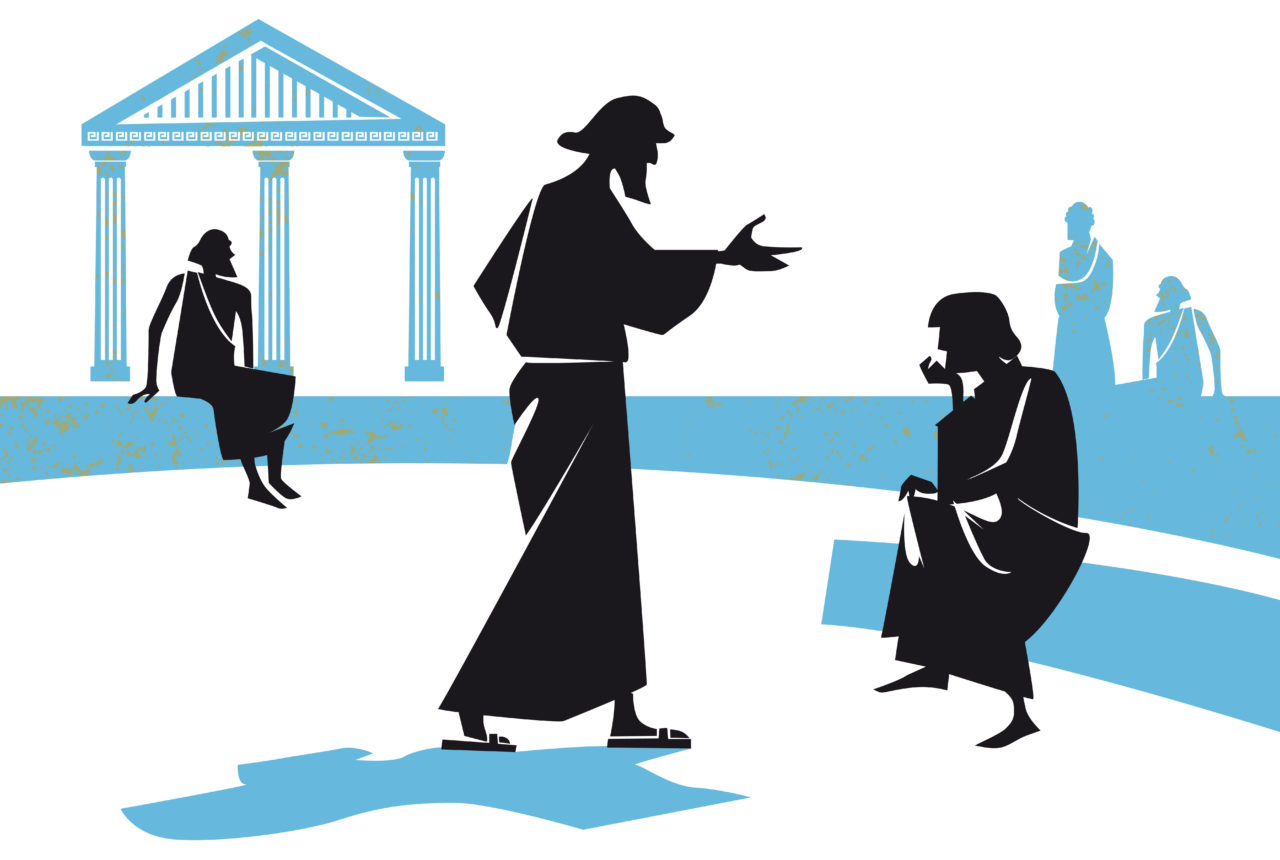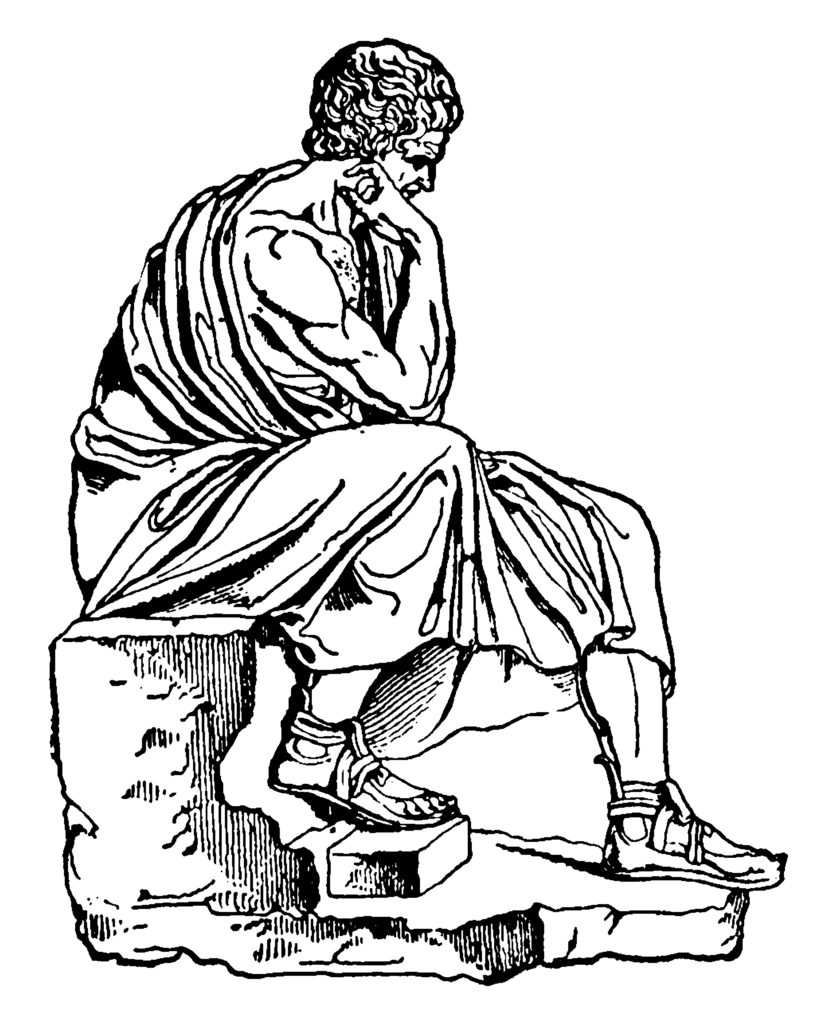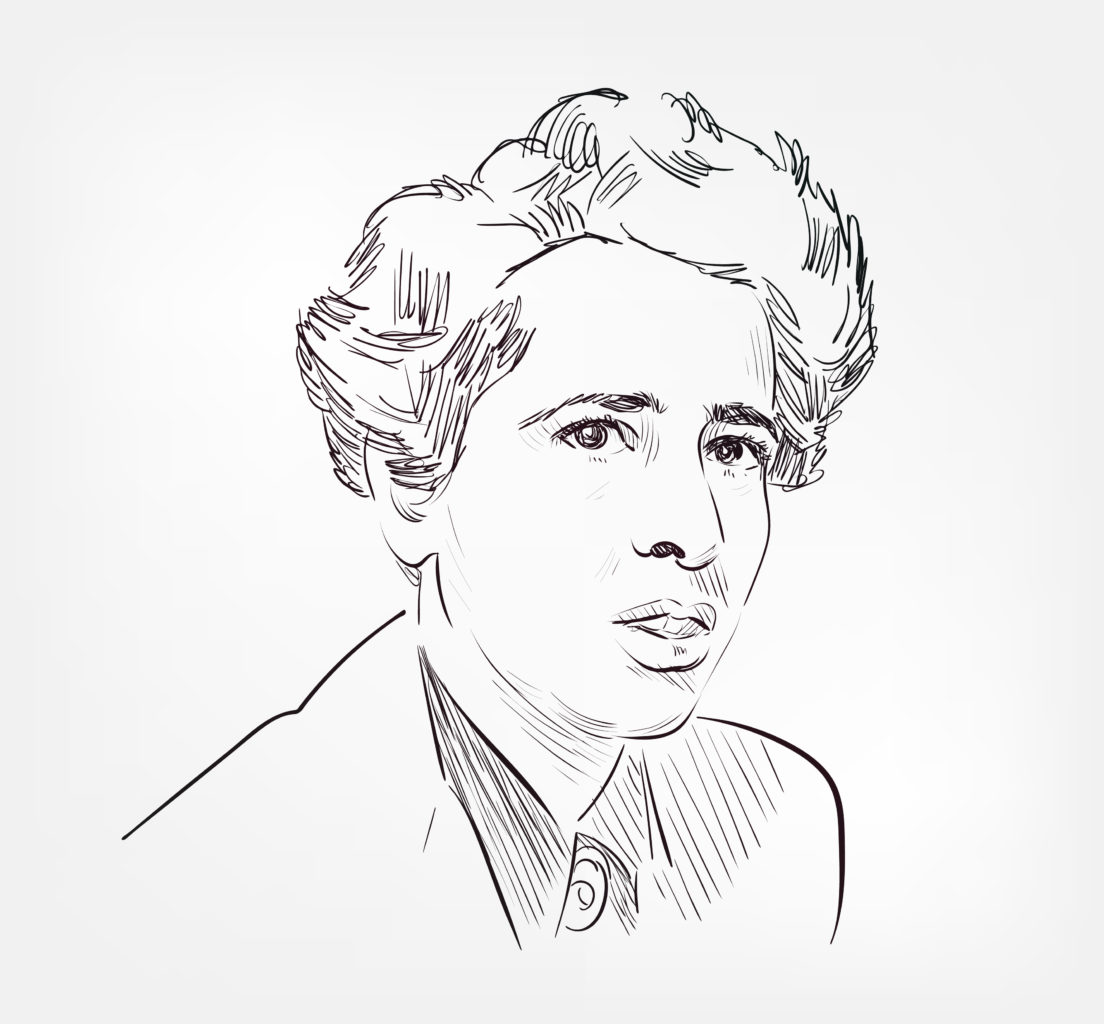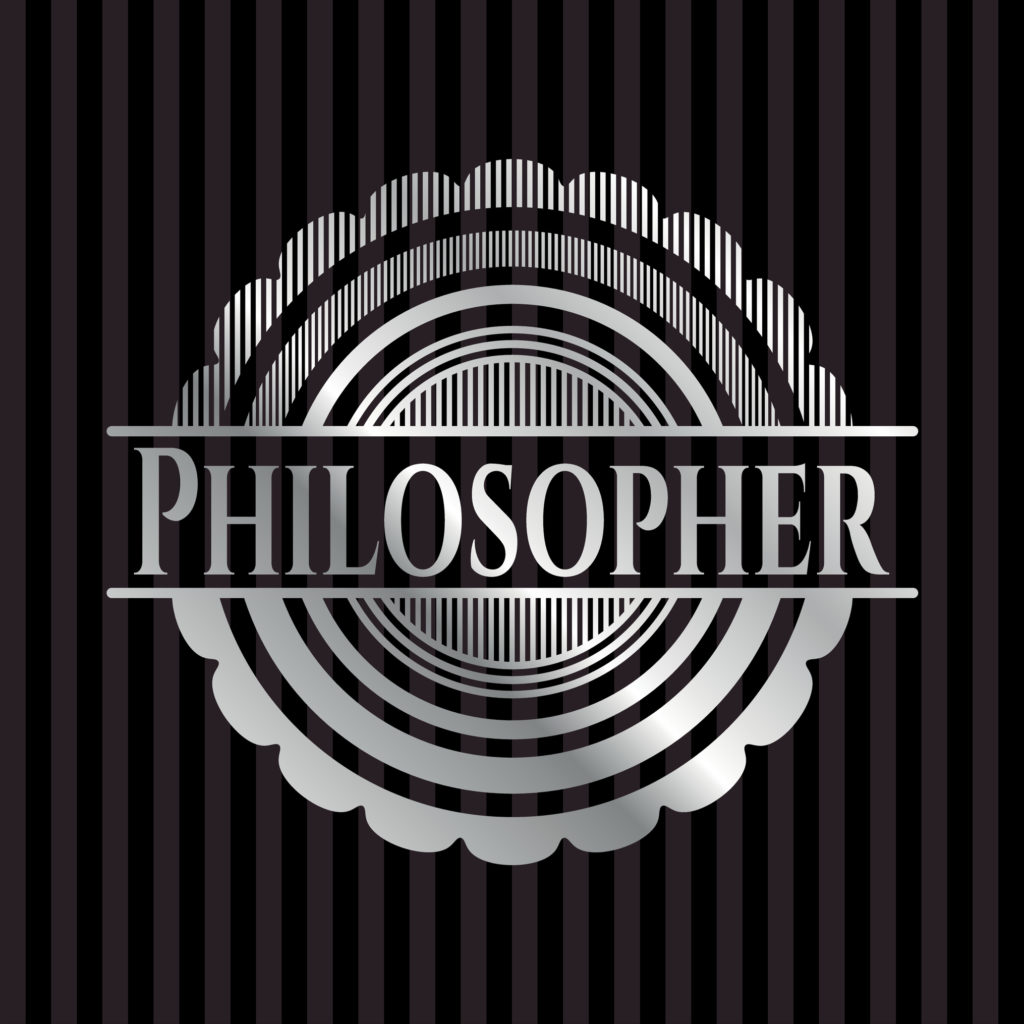Do you want an overview of key philosophy topics, or to spend time delving into the study of life’s essential questions? Are you considering an education in philosophy? A Brief Introduction to Philosophy is the resource you need whether you want to spend 20 minutes getting an overview, or up to 10 hours digging deeper.
Table of Contents
Section 1:The Origin of Philosophy

It is difficult to pinpoint the actual origin of philosophy. The word “philosophy” comes from the combination of two ancient Greek words: philos (love) and sophia (wisdom). Philosophy, “the love of wisdom”, is interested in the most fundamental questions about reality, knowledge, and human nature.
The earliest philosophers would ask questions about why things exist, how language works, and why something should be considered good or evil. Modern philosophers still ask the same questions. Their answers to these questions may sound different, but philosophy throughout the ages remains the space in which we explore our most important beliefs and ideas.
As philosophy involves critical thinking and logic, it has a lot in common with science. But it also involves creativity and imagination, which means it is often expressed through the fine arts and literature. All throughout history, philosophers have inspired innovation in our understanding of nature, math, and medicine. Philosophers drive change for what we consider beautiful, good, and true.
It is fair to locate the origin of philosophy in the earliest questions about what it means to be a person and how we can live, learn, and think well.
What do you think?
How do you think ancient philosophical thought shaped culture both past and present?
What makes someone interested in wisdom and knowledge?
Additional Resources for the Origin of Philosophy

Section 2: The Main Branches of Philosophy
Western philosophy is traditionally divided into six themes, based on the nature of the question each branch attempts to address. Thinking about how we learn or believe things, for example, requires a different approach from thinking about the scientific nature of reality and being.
Epistemology. Epistemology is the study of knowledge. It examines the differences between truth, opinion, and how we justify beliefs. Epistemology is considered a foundational branch of philosophy because it deals with the very possibility of knowing things and understanding how philosophical statements could be considered true or verifiable.
Metaphysics. Metaphysics is the branch of philosophy that deals with the nature of existence. It has three sub-branches, including ontology, the philosophy of the mind, and the philosophy of religion.
- Ontology asks about the nature of reality itself, with questions about the nature of being and existence. Why and how do things exist?
- Philosophy of the Mind asks questions about the difference between the mind and the body. In this branch of philosophy, we explore the nature of consciousness and problems around the nature of free will or determinism. How does the mind work? To what degree are we making our own choices or simply living out the patterns of nature?
- Philosophy of Religion digs into the religious ideas people have had throughout history. Where do our ideas about God or the divine come from? Is there any spiritual dimension to our existence not fully expressed in the sciences?
Logic. Logic is one of our most ancient branches of philosophy. It is the study of how arguments are made, and the application of a long list of rules about when a claim or argument could be considered true or false. Logic is very sensitive to how we become more reliant on persuasion than solid argument.
Ethics and Moral Philosophy. Ethics and moral philosophy help us understand how we develop our sense of right and wrong. It is also interested in the way society, in general, creates norms and values. We can generally think of Ethics in three different ways.
- Meta-ethics attempts to describe ethical judgments and attitudes in terms of the technical language and history of norms.
- Normative ethics examines why a certain choice could be considered right or wrong and evaluates social differences between good and evil.
- Applied ethics deals with the application of normative ethics to professions and our personal lives. Applied ethics can take many different forms, such as bioethics, business ethics, or research ethics.
Aesthetics. The study of aesthetics is a complicated evaluation of why we think art and beauty are important parts of the human experience. Investigates beauty and taste, as well as art. We often think of beauty and art as subjective experiences. Aesthetics explores the possibility that art and beauty are shared experiences that shape our judgments and decisions.
Other Branches. There are a wide variety of other branches of philosophy that connect with the five we have already described. Political philosophy addresses the individuals and societies make political or economic decisions. The philosophy of history explores the way we construct our understanding of the past and its effect on the present. The philosophy of education evaluates and applies concepts of learning. The philosophy of language attempts to describe how language is formed and to what situations human language applies.
What do you think?
Which branch or branches appeal to you the most? Why?
Additional Resources for the Main Branches of Philosophy
Section 3: Key Women Philosophers
Women have contributed to philosophy from its beginnings thousands of years ago. The following are just a few key women philosophers from the classical era through the early middle ages in the western world.
A few notable women philosophers from the classical era include:

- Arete of Cyrene (5th– 4th century BC). Arete was a Cyrenaic philosopher who studied hedonistic philosophy, a school that believed the only true good was to be found in pleasure. At one time she was a student at Plato’s academy and taught students at Athens and Attica. Her written works did not survive to the modern day.
- Hipparchia the Cynic (4th century BC). Hipparchia adopted her husband Crates’ philosophy of simple living, which was a feature of the Cynic school of philosophy. Hipparchia rejected the typical expectations that Greek society had of women. Like Crates’, she had a skeptical view of possessions and wealth. Her writings were famous in her time and earned an entry in Diogenes’ work, “Lives and Opinions of Eminent Philosophers.”
- Hypatia of Alexandria (4th– 3rd AD). Hypatia was a philosopher who studied astronomy and was a noted expert in mathematics. She taught philosophy to Christian, Roman and pagan students in Alexandria, where she was later killed by a Christian mob.
Some of the most famous women philosophers of the modern era include:

- Hannah Arendt (1906-1975). A political philosopher, Arendt fled Nazi Germany for the United States, where she wrote about fascism and the nature of totalitarianism. Her major works include The Rise of Totalitarianism (1951, The Human Condition (1958) and Eichmann in Jerusalem (1963).
- Simone de Beauvoir (1908-1986). A French existentialist, Beauvoir is considered the mother of second-wave feminism. Her primary works include The Ethics of Ambiguity and The Second Sex.
What do you think?
What was it like to be a woman in ancient philosophy?
Why is there such a lack of women in philosophy?
Additional Resources for Women in Philosophy
Section 4: Basic/Big Philosophical Questions

The most basic philosophical questions also remain the biggest questions in philosophy. Consider just a few of them:
- What is self? What is a mind? What is a person?
- What is love?
- What is beauty? Is art valuable?
- How should one act?
- Are minds computers? Are computers minds?
- What makes humans different from other animals?
Many of these questions have been pondered from the beginning of existence. They underpin our search for meaning in a world that often seems to work by arbitrary rules. Although the questions philosophy asks may seem nebulous, the process philosophers follow when answering them is far from it. Philosophers rely upon analysis, reason, and logic to approach these themes.
Questions like these have become even more important in the 21st century as technology has begun to re-define what it means to be human. Consider our fears about artificial intelligence (AI). The lure of developing AI to help solve immense technical problems is irresistible, but would a machine whose thinking is indistinguishable from a human, in fact, be human?
It’s interesting to see how more and more of the big philosophical questions become relevant as human society changes due to the influences of advanced technology.
What do you think?
Which basic philosophical question is most important to you? Why?
Which philosophical question is the most challenging to consider?
Additional Resources for Basic/ Big Philosophical Questions
Section 5: Basic Philosophical Terms/Definitions
Like all disciplines, philosophy has a very unique vocabulary. This vocabulary list is just an example of the long list of terms and definitions common to philosophy. Likewise, each definition is brief, as many of these terms correspond to centuries of argument and reflection.
Absolutism. Moral absolutism states that there are absolute standards for behavior against which all actions can be judged. This is the opposite of moral relativism.
Analytic and synthetic propositions. Analytic and synthetic propositions refer to two kinds of propositions philosophers use. An analytic proposition is something that is simply true by definition. An example would be “all widows have dead spouses.” A synthetic proposition is a bit more complicated, in that the truth of the proposition relies on the broader relationship of things. For example, “All creatures with brains have kidneys” is a synthetic proposition.
A posteriori and a priori propositions. A posteriori propositions require reliance on experience and judgments about that experience. An a priori proposition is something simply assumed, with no reliance on experience.
Behaviorism. Behaviorism is a school of thought in psychology and philosophy that believes speculation about a creature’s internal state, such as consciousness in human beings, is not useful because there is no proof that consciousness exists.
Deductive Reasoning. Deductive reasoning assumes that theories come first, which are then validated or invalidated by experience or observation. It is the alternative to inductive reasoning, which tries to reason from experience or premise to a general theory. The difference between the two is sometimes described as the difference between “top-down logic” and “bottom-up logic.”
Functionalism. Functionalism is a theory of the mind which claims that mental states are determined by what they accomplish, as opposed to being natural or altruistic patterns of thinking.
Idealism. Idealism is a form of metaphysics that attempts to determine the nature of reality. Idealism states that reality itself is inseparable from human perceptions.
Phenomenalism. Phenomenalism is a basic philosophical concept that human knowledge is restricted to information that comes to us from our senses.
Rationalism. Rationalism is the fundamental idea that actions and beliefs should be based on observable facts and reason rather than emotions or religious dogma. This philosophical concept is essential in the philosophy and history of science.
Realism. Realism states that all things exist independently of human perceptions, and that reality is not merely a figment of our minds.
Reductionism. Reductionism is the belief that all theories and phenomena can be reduced to other more fundamental theories.
What do you think?
Were any of these philosophical terms new to you?
Additional Resources for Basic Philosophical Terms/Definitions
Section 6: Important Modern Philosophers and their Ideas

Many of the important 20th-century philosophers have been concerned with science and politics, which is understandable considering the profound political upheaval in the past century, as well as the breakneck speed of scientific advancement. Consider these philosophers and their ideas, which are just a few examples of key contemporary philosophers:
Ludwig Wittgenstein (1889-1951). Ludwig Wittgenstein was an Austrian-born British philosopher who studied logic, the philosophy of mathematics, the philosophy of the mind, and the philosophy of language. His work Tractatus Logico-Philosophicus was published in 1922. His later work, Philosophical Investigations, published posthumously in 1953, largely contradicted his earlier work.
Reinhold Niebuhr (1892-1971). Reinhold Niebuhr was an American Protestant theologian whose work concerned the intersection of politics, ethics, and religion.
Karl Popper (1902-1994). Karl Popper was a philosopher of science and contributed to the development of the scientific method. In particular, he established and expanded on the concept of empirical falsification.
Noam Chomsky (b. 1928). Noam Chomsky is a linguist with profound contributions to the philosophy of language and the philosophy of the mind. He theorized that language is innate to human beings due to the unique structure of the human brain. His major works include Aspects of the Theory of Syntax (1965) and The Logical Structure of Linguistic Theory in 1975.
Jacques Derrida (1930-2004). Derrida is one of the most important 20th-century philosophers in the postmodern movement in literature. He was also a major contributor to literary deconstructionist theory. Derrida is known for the concept of différance, an essential part of the study of language and meaning
What do you think?
Which modern philosopher has made the most impact on our culture?
How has philosophy evolved over time?
Additional Resources for Important Modern Philosophers and Their Ideas
Section 7: Philosophy and Science
The relationship between philosophy and science isn’t as complex as one might think. Science and philosophy share more ideas and assumptions than it may seem at first glimpse and should not be considered as necessarily in conflict. Philosophy has been around since the classical era, during which many basic scientific concepts first appeared in the West. Concepts in modern science began to appear in the 16th century, with a renewed interest in rationalism and natural philosophy. One thing that makes science a bit different from philosophy is its focus on data and observation of natural occurrences. A scientist may be interested in how the brain works and relates to other organs in the human body. A philosopher would be more interested in the mind, and how thoughts or judgments are made by the human brain. Any kind of information that can be observed and measured is referred to as empirical data. The scientific method assumes that empiricism, or a reliance on what can be observed and measured, can produce true knowledge about nature and the human body.
A Few Philosophy Similarities and Differences
The purpose of science is to use empirical facts to develop theories about nature or the body which can be proved or disproved through experiments. Science has many practical and immediate applications that can be observed even if we do not understand the deeper, more complex workings of a theory.
A basis of philosophy is reason and reflection, with logic serving as a way to make reasonable philosophical claims. Science, in contrast, is based on observation and experimentation.
Philosophy addresses both objective and subjective questions, whereas most branches of science try to restrict exploration to objective claims and real occasions.
Philosophy tries to understand the nature of the existence, humanity and the universe. Science is concerned with how natural phenomena work, how such phenomena exist, and how we can adapt our knowledge of these phenomena.
Science deals with things that can be observed and measured. Science also looks for answers that can be tested. Philosophy is not always concerned with these same standards of verification, as the standards of logic and aesthetics are capable of responding to a different class of questions.
What do you think?
Do you think there is a link between philosophy and science? How would you describe it?
Additional Resources for Philosophy and Science
Section 8: What is Philosophical Postmodernism?

Postmodernism is an approach to thinking and discourse across many different disciplines, from art and literature to philosophy. First emerging as a term in 1979, coined by Jean-François Lyotard, early postmodern philosophers include Jacques Derrida, Jean Baudrillard, and Jean-François Lyotard. Postmodernism’s key principles posit that there are no objective truths and that science is more of an instrument of social control rather than a means of inquiry. It represents an important shift in the general direction of philosophy. While it remains a feature of modern philosophy, postmodernism disrupts the way most philosophers have thought about basic elements of the human experience.
Some common features of Postmodern philosophy include:
- Emphasis on subjectivity in art and aesthetics
- Denial of any universal objective reality
- Denial of any kind of stable reality
- Rejection of any universally valid logic
- Denial of both the truth and validity of any natural history
- Prioritizing the subjective over the objective
- Emphasis on the limits of human language
What do you think?
Which postmodern philosophical thought most resonates with you?
Additional Resources for Philosophical Postmodernism
Section 9: Best Philosophy Resources: Podcasts, Books, Journals, Websites on Philosophy
Podcasts:
- The Philosopher’s Arms by the BBC.
- Philosophy Bites Short podcasts on various topics in philosophy.
- The Partially Examined Life podcast and blog.
- How To Think About Science 24 part series on the philosophy of science.
- The Philosopher’s Zone. Over 10 years of philosophy podcasts.
- History of Philosophy Without Any Gaps. Exhaustive podcast series including Hellenic, European and Islamic philosophies, from classical to renaissance eras.
- Modern Day Philosophers. Comedians discussing philosophy.
- Very Bad Wizards. A podcast examining morality.
- Philosophize This! Educational series about philosophy in general.
Public Domain Ebooks
- Project Gutenberg. An internet repository of over 60,000 free eBooks, with dozens of original volumes of philosophy.
- Internet Classics Archive. Works of classical literature, including Greco-Roman philosophy.
Online Journals
- The Philosopher’s Magazine. Comprehensive source for essays about philosophy.
- Philosophy Now. Contemporary philosophy applied to modern issues.
Philosophy Encyclopedias
Miscellaneous Websites
- 1000wordphilosophy. A collection of 1000 word essays on philosophy.
- Philosophy Bro. A collection of easy-to-understand essays on philosophy.
- Philosophy Basics. An outstanding source of information on Western, Eastern and African philosophy. Exhaustive definitions and a who’s who of philosophy.
- Philosophy for Beginners. A massive aggregator site with over 400 philosophy resources and their links.
- The Internet Encyclopedia of Philosophy. The internet encyclopedia of philosophy is a peer-reviewed, exhaustive resource with definitions, terms and biographies of prominent philosophers.
What do you think?
Which resource is new to you?
Which resource will you look into?
Section 10: Careers for Philosophy Majors
Jobs for philosophical thinkers require the ability to approach problems logically. Persuasive writing and speaking, effective reasoning and logical questioning skills are always in demand. Philosophy majors are trained to:
- recognize and fix logical fallacies
- uncover assumptions and suggest alternatives
- write clearly and effectively
- speak persuasively
- analyze, assess and develop logical arguments
- aptitude to examine various angles of topics
- interpret and assess various thoughts and theories
Consider just a few of the typical fields where philosophy majors thrive:
Law. Law is reliant on clear, logical thinking and the ability to construct well-written logical arguments. Law also uses the philosophy major’s experience in approaching problems from multiple angles. Because of this, philosophy majors have a high rate of acceptance into law school. Philosophy majors may pursue careers like paralegal or clearly and quickly, as well as for their skill in analyzing and presenting arguments. A Juris Doctor commands a salary of around $115,000, making it a well-paid career for philosophy majors.
Business. Like law, business needs people who can make strong arguments based on facts and logical reasoning. Business writing and planning in particular benefit from the analytical skills common to philosophy majors.
Government. Political science is a major branch of philosophy that’s useful in government. Philosophy’s emphasis on the study of ethics and morality also helps inform those seeking careers in government.
Science. A career in the sciences
Academia. Many philosophy majors teach.
Journalism. Careers in journalism require the ability to produce outstanding writing that’s clear, logical, informative and engaging.
What do you think?
Which career in philosophy is most appealing to you?
Additional Resources for Careers for Philosophy Majors
Section 11: Typical Courses Philosophy Students Take
The coursework a particular degree requires is dependent on whether the program is a general degree, like a bachelor’s degree in philosophy, or more specialized, like the bachelor’s degree in History and the Philosophy of Science and Technology. The following is a list of typical classes a student of philosophy will encounter.
- Introduction to Philosophy
- Philosophy of Language
- Philosophy of Science
- Philosophy of Art
- Philosophy of the mind
- Classical Greek Philosophy
- Ethics and Moral Philosophy
- Epistemology
- Metaethics
- Introduction to Reasoning
- Introduction to Logic
- Symbolic Logic
- Modal Logic
- Epistemology
- Comparative Religion
- Western Philosophy
- Indian Philosophy
- Concepts from Eastern Philosophy
- Apologetics
- The philosophers: (usually one semester on each prominent philosopher, e.g., Plato, Socrates, Aristotle, etc)
Section 12: List of Philosophy Degrees (and Description)
Bachelor’s degree in Philosophy. A bachelor’s degree encompasses the most essential principles and skills of philosophy, such as rhetoric, critical thinking, writing, and analysis. Students with a bachelor’s degree in philosophy are able to employ critical, argumentative and analytical skills to a high degree of proficiency. Jobs for those with a bachelor’s degree in philosophy include technical writing, law, the clergy, information management, and journalism. A bachelor’s degree usually takes 4 years to complete.
Bachelor’s degree in History and Philosophy of Science and Technology. A bachelor’s degree in History and Philosophy of Science (HPS) examines the sciences, medicine, and technology from many perspectives, including historical, social and conceptual. Students attend courses in Classics, English, Political Science, and History.
Bachelor’s degree in Philosophy and Religious Study. A degree in philosophy and religious studies is an excellent springboard to a career in the humanitarian fields.
Master’s degree in Philosophy. A master’s introduces more complex areas, like advanced logic, aesthetics, political philosophy and the philosophy of the mind. A master’s thesis and comprehensive exit examination are common requirements to earn the master’s degree in Philosophy. A master’s degree may take 2 to 3 years to complete.
Master’s degree in Applied Ethics. A master’s degree in applied ethics develops a student’s critical thinking and analysis skills along with moral reasoning. These programs teach students how to identify, analyze and resolve complex ethical issues. Business and law are common fields of employment for those with this degree.
Doctoral degree in Philosophy. A doctoral degree in philosophy centers around a doctoral dissertation, which is an original, comprehensive work of scholarship. A doctorate involves additional coursework, advanced seminars, and a successful defense of one’s dissertation.
Additional Resources for the Study of Philosophy
More Courses:
- Introduction to Accounting
- Introduction to Business Administration
- Introduction to Economics
- Introduction to Finance
- Introduction to Accounting
- Introduction to Entrepreneurship
- Introduction to Investing
- Introduction to Nutrition
- Introduction to Interior Design
- Introduction to Digital Marketing
- Introduction to Real Estate
- Introduction to Hospitality Management